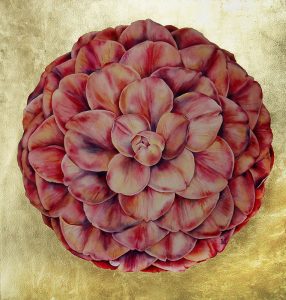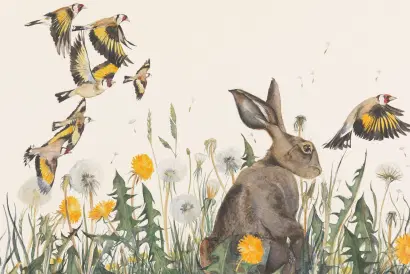 The Yogabliss, Your Heart Life on-line Moving into Meditation classes met this morning. We explored embodiment and vulnerability. These qualities can nourish the ground from which our compassion, empathy and courage can arise. Like plants, we also embody a natural innocence and an impetus to grow.
The Yogabliss, Your Heart Life on-line Moving into Meditation classes met this morning. We explored embodiment and vulnerability. These qualities can nourish the ground from which our compassion, empathy and courage can arise. Like plants, we also embody a natural innocence and an impetus to grow.
We heard Tara Brach’s definition of “radical compassion.” In her book, Radical Compassion: Learning to Love Yourself and Your World with the Practice of RAIN, Tara writes that it means including vulnerability of all life in our hearts. Tara offers helpful mindfulness practices that help students to bring inner resources of compassion, kindness and insight to the difficult feelings of fear, loss, and self-judgment. You can find a free study guide at the book’s link above.
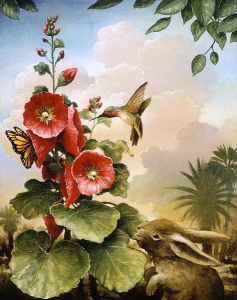 We heard Innocence, from Linda Hogan’s 2014 poetry collection Dark, Sweet. The poem describes the natural state of innocence we all share. Linda’s simple phrases about gardening recognize our vulnerability. They describe how we grow into being and fullness.
We heard Innocence, from Linda Hogan’s 2014 poetry collection Dark, Sweet. The poem describes the natural state of innocence we all share. Linda’s simple phrases about gardening recognize our vulnerability. They describe how we grow into being and fullness.
We drew from Krista Tippett’s interview with poet David White: The Conversational Nature of Reality in which he spoke to our essential vulnerability. He describes it as an “ever present and abiding undercurrent of our natural state.” When we can acknowledge the truth of our humanity – we also find our compassion, empathy and courage.
We ended with Mary Oliver’s poem, Messenger from her 2007 collection, Thirst. Mary’s words of wonder, gratitude and joy remind me of qualities that are sometimes overshadowed by our challenging times. They give me the wanting to stay alive and engaged in the world.
I invite you to imagine you were stepping out of the stream of doing. This might mean sensing the inner momentum you are bringing with you. See if you can feel it in your body. At the same time, you might feel your body breathing. See if you can notice the relative ease or openness, tension or guardedness that might be happening in your body. Is it possible for you to create an orientation of tender kindness?
When you’re ready, you can move your awareness through your body or let it rest as needed. Can you let your embodied presence be known? Notice where you might be drawn to pause. How is it for you to rest awareness?
See if you can bring open and tender awareness to feeling and sensing your body. Can there be a loving presencing with the body? Meditation teacher and author Tara Brach calls this:
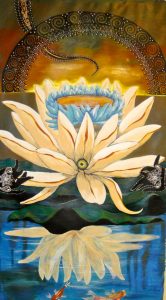 Radical compassion . . . means including the vulnerability of this life – all life in our heart. It means having the courage to love ourselves, each other, and our world. Radical compassion is rooted in mindful, embodied presence and it is expressed actively through caring that includes all beings.
Radical compassion . . . means including the vulnerability of this life – all life in our heart. It means having the courage to love ourselves, each other, and our world. Radical compassion is rooted in mindful, embodied presence and it is expressed actively through caring that includes all beings.
I invite you to reflect on what it is to include the vulnerability of life in your heart. What does this mean for you today, right now?
To me, this vulnerability speaks of innocence. Innocence speaks of compassion. It speaks of the hope and humility in life becoming itself. I feel it in Spring’s awakening, greening and growing. Rooted, embodied, presence. Here are poet Linda Hogan’s observations about Innocence:
There is nothing more innocent
than the still-unformed creature I find beneath soil,
neither of us knowing what it will become
in the abundance of the planet.
It makes a living only by remaining still
in its niche.
One day it may struggle out of its tender
pearl of blind skin
with a wing or with vision
leaving behind the transparent.
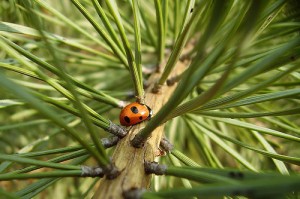 I cover it again, keep laboring,
I cover it again, keep laboring,
hands in earth, myself a singular body.
Watching things grow,
wondering how
a cut blade of grass knows
how to turn sharp again at the end.
This same growing must be myself,
not aware yet of what I will become
in my own fullness
inside this simple flesh.
Once again I invite to let yourself experience ease and rest. Allow your body to make itself known. Perhaps you can feel the sensations of settling slowly surfacing.
Poet and writer David Whyte writes about embodiment
which simply means being here in your body — not anywhere else, just here with life’s fierce need to change you — the fact that the more you’re here and the more you’re alive, the more you realize you’re a mortal human being and that you’ll pass from this place.
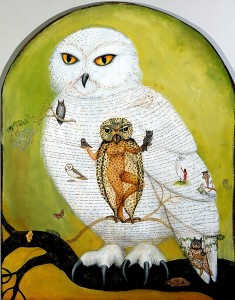 Returning awareness to the body is to return to life. Returning to life is to awaken. Notice what you encounter in returning to what’s true right now. Sensations, emotions, thoughts may arise unbidden. Can you stay right here, for these few moments, and be with whatever is unfolding inside you? What happens if you meet this unfolding with kindness?
Returning awareness to the body is to return to life. Returning to life is to awaken. Notice what you encounter in returning to what’s true right now. Sensations, emotions, thoughts may arise unbidden. Can you stay right here, for these few moments, and be with whatever is unfolding inside you? What happens if you meet this unfolding with kindness?
David writes that
Vulnerability is not a weakness, . . . vulnerability is not a choice, vulnerability is the underlying, ever present and abiding undercurrent of our natural state. To run from vulnerability is to run from the essence of our nature, the attempt to be invulnerable is the vain attempt to become something we are not and most especially, to close off our understanding of the grief of others. . . .
The only choice we have as we mature is how we inhabit our vulnerability, how we become larger and more courageous and more compassionate through our intimacy with disappearance. . . .
 In rooted, embodied presence we can touch our vulnerability. We can touch the sensitive newborn places and tender aging places inside. There may be moments when we rest our hands lovingly around an area – truly connecting. Asking that part of ourselves:
In rooted, embodied presence we can touch our vulnerability. We can touch the sensitive newborn places and tender aging places inside. There may be moments when we rest our hands lovingly around an area – truly connecting. Asking that part of ourselves:
“What do you most need right now?” We can nurture that tender part by saying “I care deeply about what you need.”
Our innocent vulnerability affirms our inter-being with all Life. It seems so like the green budding plants of Spring around us. Our first response to a newborn baby is love. We were born to love. We can become larger and more courageous and more compassionate with love. As Mary Oliver describes in her poem:
My work is loving the world.
Here the sunflowers, there the hummingbird –
equal seekers of sweetness.
Here the quickening yeast; there the blue plums.
Here the clam deep in the speckled sand.
Are my boots old? Is my coat torn?
Am I no longer young and still not half-perfect? Let me
keep my mind on what matters,
which is my work,
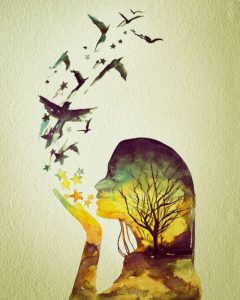 which is mostly standing still and learning to be astonished.
which is mostly standing still and learning to be astonished.
The phoebe, the delphinium.
The sheep in the pasture, and the pasture.
Which is mostly rejoicing, since all ingredients are here,
Which is gratitude, to be given a mind and a heart
and these body-clothes,
a mouth with which to give shouts of joy
to the moth and the wren, to the sleepy dug-up clam,
telling them all, over and over, how it is
that we live forever.

